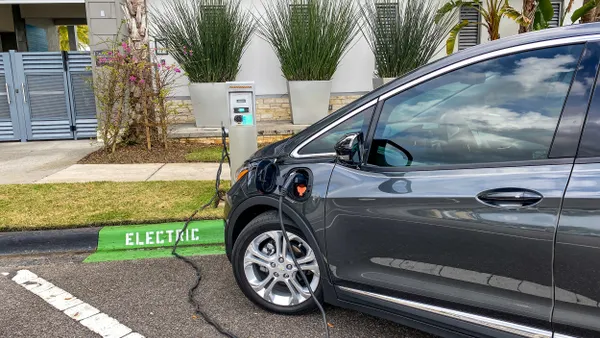After a $5.2 billion plan was shot down by voters in a Tuesday referendum, various stakeholders are looking to chart a different course for transit in Nashville, TN.
The plan, called Let's Move Nashville, would have dramatically revamped the city's public transportation, including adding light rail, a revamped bus system, new transit hubs and a huge tunnel below downtown. But about 64% of voters rejected the measure, according to The Tennessean, bringing fresh uncertainty to the debate.
Statistics on voting appear to show something of an urban/suburban divide in Nashville, with more people in the city's core favoring the proposal, but those in the surrounding area of Davidson County in opposition. That could have stemmed in part from the plan's funding structure, which would have raised four taxes to pay for it.
Nashville, here's how you voted for the Transit Referendum. https://t.co/sKeYQFhNbd pic.twitter.com/cBQ1EBtwZz
— NewsChannel 5 (@NC5) May 2, 2018
But in the referendum's initial aftermath, there appears to be broad agreement that Nashville's traffic congestion and population growth must be better managed, and a plan must be in place to do so. "We certainly hope that everyone who voted against this plan because they wanted to see a better one will continue to make their voices heard moving forward," plan supporters Transit for Nashville said in a statement. "You know, our population growth projections aren't changing. Our development trends aren't changing," Nashville Metropolitan Transit Authority CEO Steve Bland told Nashville Public Radio.
Officials with the Nashville Area Chamber of Commerce, which has been scrutinized in some quarters for pushing hard for a May referendum vote as opposed to a later date, expressed a similar sentiment. "While the final outcome was disappointing, we hope our work has laid the foundation for the future of our region," Chamber president and CEO Ralph Schulz said in a statement.
While there is broad agreement on the problems that need fixing, there appears to be little in terms of a concrete alternative that can be voted on and implemented. Councilman Robert Swope unveiled a different plan on the eve of early voting called "Intelligent Transit for the It City Nashville," which suggested integrating personal transportation and mass transit by using interconnected autonomous vehicles (AVs) and double-decker highways on Interstates 64, 24 and 40.
Editorials in The Tennessean and the Nashville Business Journal called for swift action to formulate a new plan. The pair agreed any alternative must be released soon, not in the 8-10 years that some said it would take for a new development.
The editorials said reopening public discussion on the city's nMotion plan, approved in 2016 and the forerunner to the Let's Move Nashville proposal, could be an option to move forward. And, The Tennessean notes, the city should work with the new Tennessee Governor and state legislature to amend the state's 2017 IMPROVE Act to make it easier for regional transit plans to be implemented. "Urgency is of the essence, and as painful as it is, now is the time to get back up and find the solution that will keep Nashville and Middle Tennessee vibrant and attractive for longtime residents and newcomers alike," The Tennessean editorial reads.
Such urgency could continue to be roiled by a complex political situation in the city after the resignation of former Mayor Megan Barry following her guilty plea to felony theft, and a special election coming at the end of May to complete her term. Barry proposed the failed plan before her fall and interim Mayor David Briley was also a proponent, but CityLab argued her resignation could have undermined the push for the plan and sowed distrust in City Hall.
Briley is scheduled to give the Annual State of Metro speech on Friday morning to discuss the city's present and future, perhaps a springboard necessary for new ideas for the city's transportation. The problems, Briley said, "are not going away."












